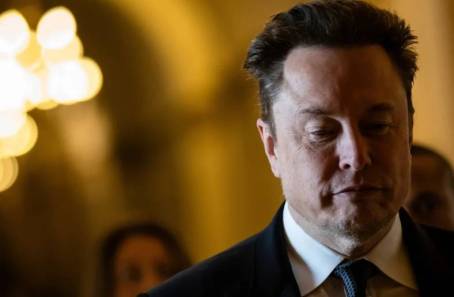Elon Musk sued OpenAI, saying the company had given up on its non-profit purpose. The lawsuit was dropped in July, but it was brought back in August. As of now, the lawsuit has added new defendants, such as Microsoft, Reid Hoffman, co-founder of LinkedIn, and Dee Templeton, former board member of OpenAI and vice president of Microsoft.
New plaintiffs are added in the amended file. They are Shivon Zilis, an executive at Neuralink and a former member of the OpenAI board, and Musk’s AI company, xAI.
Musk was one of the original founders of OpenAI, a non-profit organization whose goal was to study and create AI for the good of all people. In 2018, he quit the company because he didn’t agree with its direction.
Musk’s lawyers say in the lawsuit that OpenAI is now “actively trying to eliminate competitors” like xAI by “getting investors to promise not to fund them.” It’s also said to be unfairly using Microsoft’s infrastructure and knowledge, which Musk’s lawyer calls a “de facto merger” in the filing.
“xAI has been hurt by, among other things, not being able to get computing power from Microsoft on terms even close to as good as OpenAI gets…” The lawsuit, which was filed late Thursday night in federal court in Oakland, California, says that OpenAI and Microsoft shared competitively sensitive information with each other only.
The lawsuit says that Hoffman’s roles on the boards of both Microsoft and OpenAI and as a partner at the investment firm Greylock gave him a special, and illegal, look into how the companies worked. It was in 2023 that Hoffman left the board of OpenAI. Musk’s lawyer says that Greylock invested in Inflection, the AI startup that Microsoft bought earlier this year and which, according to the lawsuit, could be seen as a competitor to OpenAI.
Templeton was temporarily named by Microsoft as a non-voting board observer at OpenAI. The updated filing says that she was able to help Microsoft and OpenAI make deals that would have broken antitrust laws.
The lawsuit says, “The purpose of the ban on interlocking directorates is to stop people from sharing competitively sensitive information in a way that breaks antitrust laws and/or giving people a place to plan other anticompetitive behavior.” “Adding Templeton and Hoffman to OpenAI’s board of directors went against this goal.”
In Musk’s lawsuit, California Attorney General Rob Bonta is named as a defendant, along with Microsoft, Hoffman, and Templeton. Bloomberg said this month that OpenAI is talking with Bonta’s office about how to change the way its business is set up.
According to the updated lawsuit, Zilis is a “injured employee” under California Corporations Code. He left OpenAI’s board in 2023 after being a member for about four years. According to the complaint, Zilis frequently voiced concerns about how OpenAI was making deals internally, but they were ignored. These concerns were very similar to Musk’s.
Zilis is close with Musk because he was a project director at Tesla from 2017 to 2019 and also led the study at Neuralink. Musk’s brain-computer communication company is called Neurolink. Musk’s three kids—Techno Mechanicus, Strider and Azure, who are twins—are also her children.
In the 107-page amended complaint, there is an interesting detail: in January 2018, OpenAI CEO Sam Altman suggested that the company sell its own cryptocurrency. However, the company finally chose to switch to a capped-profit structure instead.
In an email to Musk on January 21, 2018, Altman said, “Heads up, spoke to some of the safety team and there were a lot of concerns about the ICO and possible unintended effects in the future.” This email was filed with the amended complaint as an exhibit. Initial coin offerings, or ICOs, are a way for cryptocurrency companies to get money without having to follow any rules. “I’m going to stress how important it is to keep this secret, but I also think it’s important that we get buy-in and let people weigh in early.”
Musk is said to have turned down the idea of selling crypto. In an email to Altman and OpenAI co-founders Greg Brockman (now OpenAI’s president) and Ilya Sutskever (ex-chief scientist), he said, “I have considered the ICO approach and will not support it.” He also showed an exhibit. “That would destroy OpenAI’s credibility and the credibility of everyone involved with the ICO in my opinion.”
The plaintiffs’ main claim in the case hasn’t changed: they say that OpenAI made money off of Musk’s early work with the company but broke its promise as a nonprofit to share the results of its AI research with everyone. The lawsuit says, “No amount of clever drafting nor over-the-top creative dealmaking can hide what is happening here.” “OpenAI, Inc., which Musk helped to start as a separate charity focused on safety and openness, is quickly turning into a fully for-profit Microsoft subsidiary.”
OpenAI has tried to get rid of Musk’s case by saying it is “blustery” and has no grounds.
What do you say about this story? Visit Parhlo World For more.


